Aims
– Designing and dimensioning processes for treating the air, water and waste
– Handling methods of analysing trace products and trace pollutants
– Environmental management.
The sectors of activity aimed at
In general, all sectors of the chemicals industry are likely to be impacted by this course. The most concerned are:
-
- Water treatment
- Air treatment
- Agri-food
- Petrochemistry
- Energy
- The environment
- The chemicals industry
- Laboratories and research bodies (DRIRE, ADEME, etc.)
- Design offices
- Eco-industries
Content of the course
The training covers:
- Analysis: techniques and methodologies of analysis, specific factors in the analysis of trace elements, statistical methods, what happens to chemicals in the environment (water, air, soil).
- Process Engineering: unitary operations (absorption, adsorption, etc.), reactors, intensification of processes, membrane and biological processes, treatment of the air, water and waste, renewable raw materials.
- Microbiology-Biotechnologies
- Environmental Management: the law of the environment, systems of environmental management, analyse of the life-cycle.
Note that many of the lecturers on this course come from the business world (Veolia, Socotec, Cabinet Merlin…) and major research bodies (CNRS, IRSTEA, CEA…)
For what professions?
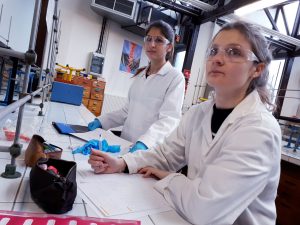 This major is a gateway to various careers:
This major is a gateway to various careers:
- Process or manufacturing engineer
- Design engineer (research and design office)
- Environmental engineer
- Quality engineer
- Health and Safety Engineer
- Control laboratory engineer
- Process research engineer
- Analytic research engineer
- Technico-commercial engineer
- Research fellow or researcher
Philippe Sauvignet, Veolia, Industrialization Manager within the Technical and Performance Department of Veolia Environnement SA and drinking water expert.
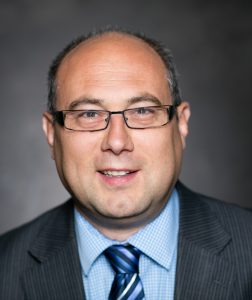 “I am in charge of the industrialization of a new drinking water and wastewater treatment process for the Veolia group. In this context, I conduct process tests on the factory with pilot installations and other prototypes. Since 2007, I have been recruiting ENSCR engineering students because they are well trained, competent and above all motivated by our professions. The training given at the ENSCR is a quality training which combines the necessary theory as well as practical application. This suits us very well because we are of course looking for well-made faces but also and above all young people full of dynamism. I found within the teaching team supports and relays of our needs as well as the requirements of our trades in terms of recruitment. Almost half of the BAC + 5 students that we welcome in this framework integrate the Veolia group. I am in contact with many of them long after their studies have ended and their visit to our test centers. It is therefore a big thumbs up that we can send to teaching within the ENSCR. “
“I am in charge of the industrialization of a new drinking water and wastewater treatment process for the Veolia group. In this context, I conduct process tests on the factory with pilot installations and other prototypes. Since 2007, I have been recruiting ENSCR engineering students because they are well trained, competent and above all motivated by our professions. The training given at the ENSCR is a quality training which combines the necessary theory as well as practical application. This suits us very well because we are of course looking for well-made faces but also and above all young people full of dynamism. I found within the teaching team supports and relays of our needs as well as the requirements of our trades in terms of recruitment. Almost half of the BAC + 5 students that we welcome in this framework integrate the Veolia group. I am in contact with many of them long after their studies have ended and their visit to our test centers. It is therefore a big thumbs up that we can send to teaching within the ENSCR. “
Romain Mailler, Head of R&D unit at SIAPP, the public sanitation service in Ile-de-France
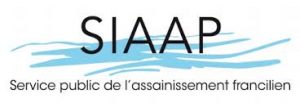 “SIAAP is in charge of transporting and cleaning up wastewater for the Paris area (around 10 million people). Due to its large size, it regularly recruits engineers for internships or jobs. Within the Expertise and Prospective Service of the Innovation and Environment Department, where I work, we often ask the ENSCR and other schools to find candidates for the end-of-study internships that we offer every year. We regularly select ENSCR candidates. Indeed, our R&D activity in the field of sanitation requires a certain maturity, rigor and adaptability, as well as solid scientific and technical bases, in order to take in hand complex subjects calling upon various disciplines ranging from process engineering corrosion, rheology or process modeling. These qualities, among others, are found in students finalizing their studies within the ENSCR, which makes them candidates of choice for us. It is also for this reason that we can go so far as to recruit these interns following their internship experience with us, which was the case recently for an ENSCR student. “
“SIAAP is in charge of transporting and cleaning up wastewater for the Paris area (around 10 million people). Due to its large size, it regularly recruits engineers for internships or jobs. Within the Expertise and Prospective Service of the Innovation and Environment Department, where I work, we often ask the ENSCR and other schools to find candidates for the end-of-study internships that we offer every year. We regularly select ENSCR candidates. Indeed, our R&D activity in the field of sanitation requires a certain maturity, rigor and adaptability, as well as solid scientific and technical bases, in order to take in hand complex subjects calling upon various disciplines ranging from process engineering corrosion, rheology or process modeling. These qualities, among others, are found in students finalizing their studies within the ENSCR, which makes them candidates of choice for us. It is also for this reason that we can go so far as to recruit these interns following their internship experience with us, which was the case recently for an ENSCR student. “
Florian Routhier, engineering director at Sources
 “SOURCES is an independent SME specializing in the construction of treatment plants for the past twenty years. We had the pleasure of discovering the ENSCR water training about 6 years ago. Since that date, we have systematically recruited students each year (internship followed by a permanent contract) who come to bring added value to our workforce. Beyond the quality of the training, we particularly appreciate the positive and dynamic mindset, perfectly suited to SME structures like ours. We are therefore delighted with this recruitment process leading to positions of study and monitoring of treatment plant work with a rapid change in responsibilities. “
“SOURCES is an independent SME specializing in the construction of treatment plants for the past twenty years. We had the pleasure of discovering the ENSCR water training about 6 years ago. Since that date, we have systematically recruited students each year (internship followed by a permanent contract) who come to bring added value to our workforce. Beyond the quality of the training, we particularly appreciate the positive and dynamic mindset, perfectly suited to SME structures like ours. We are therefore delighted with this recruitment process leading to positions of study and monitoring of treatment plant work with a rapid change in responsibilities. “
Gwenaël DANIGO (class 2017) is Head of Business Engineering at Sources
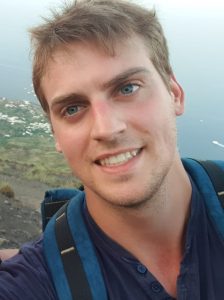 “ Having always had a desire to work in the field of the environment that today requires a special attention of our generation and future, it is at the ENSCR that I specialized in Process & Environmental Engineering with the EPA branch of the school. In this training, I learned the theory, processes and techniques of water, air and waste treatment. It was during my 3rd year internship in the company SOURCES that I was able to deepen my theory and discover a concrete application in the field. Today, as Head of Business Engineer at SOURCES, I am in charge of several construction projects for a water treatment plant, a drinking water plant and a turnkey storm water storage tank. My job is structured around two main axes:
“ Having always had a desire to work in the field of the environment that today requires a special attention of our generation and future, it is at the ENSCR that I specialized in Process & Environmental Engineering with the EPA branch of the school. In this training, I learned the theory, processes and techniques of water, air and waste treatment. It was during my 3rd year internship in the company SOURCES that I was able to deepen my theory and discover a concrete application in the field. Today, as Head of Business Engineer at SOURCES, I am in charge of several construction projects for a water treatment plant, a drinking water plant and a turnkey storm water storage tank. My job is structured around two main axes:
– Study phase: the design and design of the facility to respond to calls for tenders conducted by municipalities or local authorities;
– Site phase: supervision, management, monitoring and start-up of facilities.
The responsibilities that were given to me upon my arrival in the company have given me a taste of the world of work and have led me to discover several areas of activity that we are led to encounter. That’s why I appreciate my job because, beyond my training in the treatment processes I deal with on a daily basis, my continuous training day by day in other sectors of activity (electricity, civil engineering, automation, etc.) closely linked to the process.”
Jérémy BONNEAU (class of 2015) is in charge of studies and technical projects at SPL Eau du Bassin Rennais.
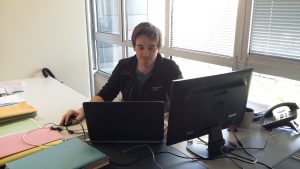 « Attracted relatively early in my studies by environmental chemistry, I naturally turned to the EPA sector. This course was able to satisfy my curiosity and my thirst to learn in areas of interest such as water chemistry, treatment processes, analytical methods or statistics. After several internships in drinking water (R&D, BE) and a civic service in the environment, I now use my skills at the service of the Société Publique Locale Eau du Bassin Rennais, a company producing and distributing drinking water. As a Project Manager, I work on a wide variety of projects such as monitoring the redesign of a UTEP, the creation of a pumping station, strengthening the instrumentation… An important part of my work also involves monitoring the quality of water produced and leading research and development projects at the 7 SPL production sites (deferrisation, emerging pollutants, pesticides, process performance, mechanization of equipment, etc.). In my opinion, the key competence for this position is an important adaptive capacity combined with a strong curiosity to quickly become relevant and versatile on the many themes proposed (chemistry, hydraulics, civil engineering, electrical, administrative, political, etc.). On the other hand, the interface with many interlocutors, such as factory or network operators, the community or universities, contributes to the richness of this position. Enough to continue to flourish after ENSCR.”
« Attracted relatively early in my studies by environmental chemistry, I naturally turned to the EPA sector. This course was able to satisfy my curiosity and my thirst to learn in areas of interest such as water chemistry, treatment processes, analytical methods or statistics. After several internships in drinking water (R&D, BE) and a civic service in the environment, I now use my skills at the service of the Société Publique Locale Eau du Bassin Rennais, a company producing and distributing drinking water. As a Project Manager, I work on a wide variety of projects such as monitoring the redesign of a UTEP, the creation of a pumping station, strengthening the instrumentation… An important part of my work also involves monitoring the quality of water produced and leading research and development projects at the 7 SPL production sites (deferrisation, emerging pollutants, pesticides, process performance, mechanization of equipment, etc.). In my opinion, the key competence for this position is an important adaptive capacity combined with a strong curiosity to quickly become relevant and versatile on the many themes proposed (chemistry, hydraulics, civil engineering, electrical, administrative, political, etc.). On the other hand, the interface with many interlocutors, such as factory or network operators, the community or universities, contributes to the richness of this position. Enough to continue to flourish after ENSCR.”
Léa Sevenou (Promo 2015) is a sales technician at Timab Magnesium – Roullier group
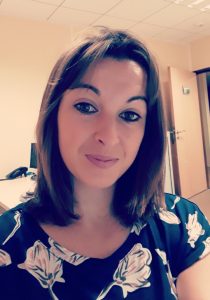 « I am a sales technician in charge of developing magnesium reagents for water treatment at TIMAB Magnesium, which belongs to the Roullier group, a specialist in fertilizers and fertilizers. Applications include neutralization (replacing soda with Mg(OH)2), treatment and recovery of phosphorus and ammonium. At the graduation ceremony, a representative of the Rust group came to meet us. I am passionate about my work, which is versatile and nearly 90% technical: I meet with managers from STEP, the technical department at VEOLIA, SUEZ and SAUR. I do prospecting, as well as contact, laboratory studies, industrial testing, commercial offer, contracts and customer follow-up.”
« I am a sales technician in charge of developing magnesium reagents for water treatment at TIMAB Magnesium, which belongs to the Roullier group, a specialist in fertilizers and fertilizers. Applications include neutralization (replacing soda with Mg(OH)2), treatment and recovery of phosphorus and ammonium. At the graduation ceremony, a representative of the Rust group came to meet us. I am passionate about my work, which is versatile and nearly 90% technical: I meet with managers from STEP, the technical department at VEOLIA, SUEZ and SAUR. I do prospecting, as well as contact, laboratory studies, industrial testing, commercial offer, contracts and customer follow-up.”
François Vuong is Engineer R&D LAB La Seyne-sur-Mer (class 2012)
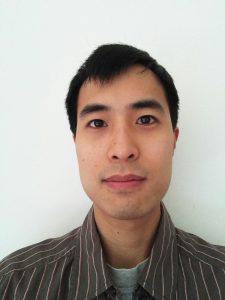 « My degree at the ENSCR allowed us to understand in depth the technological issues in the fields of the environment. The major EPA is ideal for building a solid scientific basis in water chemistry and analysis, as well as in process. After two internships abroad in water treatment, at the Technological University of Delft (Netherlands) and at Véolia Berlin, I continued on a doctorate in process engineering at the Institut National de Recherche et de Sécurité in Nancy. I studied for three years the gas/solid transfers in active carbon gas mask. My academic background was decisive for my integration into the R&D department of LAB SA, a major player in smoke treatment in municipal incinerators. The doctor/engineer profile is of interest to various technology-oriented companies. I believe that teaching at ENSCR is an ideal springboard for pursuing a career in scientific research or in the chemical industry.”
« My degree at the ENSCR allowed us to understand in depth the technological issues in the fields of the environment. The major EPA is ideal for building a solid scientific basis in water chemistry and analysis, as well as in process. After two internships abroad in water treatment, at the Technological University of Delft (Netherlands) and at Véolia Berlin, I continued on a doctorate in process engineering at the Institut National de Recherche et de Sécurité in Nancy. I studied for three years the gas/solid transfers in active carbon gas mask. My academic background was decisive for my integration into the R&D department of LAB SA, a major player in smoke treatment in municipal incinerators. The doctor/engineer profile is of interest to various technology-oriented companies. I believe that teaching at ENSCR is an ideal springboard for pursuing a career in scientific research or in the chemical industry.”
Marie Anet (2011 class) is responsible for Environment at SOCOTEC
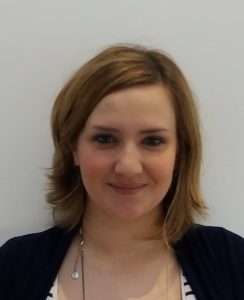 “Graduated in 2011, I chose the major in EPA,” Analysis “option in 2nd year after repeating my 1st year in college. In the 3rd year, I continued the EPA Analysis module in parallel with the Master of Business Administration (Business Management module) at the Rennes Management Institute. My training was of course enriched by my end-of-year internships. I did my internship in business discovery (1st year) at Total, in Scotland. In the 2nd year, I led a project to optimize a leachate treatment station during an internship in the sanitation department of Veolia Water (Rennes agency). They called me again the following year (3rd year internship) to develop a tool for monitoring and managing the depollution facilities of the service. I started my first job in a SOCOTEC branch two weeks after I graduated. It was an environmental design office for which I carried out technical studies within the framework of regulatory files, in particular with regard to water management. After a year and a half, I joined the Environment branch of SOCOTEC and my missions have evolved. Today, I specialize in two areas: management of polluted water and sites and soils, which I am in charge of, business development, commercial development and production. “
“Graduated in 2011, I chose the major in EPA,” Analysis “option in 2nd year after repeating my 1st year in college. In the 3rd year, I continued the EPA Analysis module in parallel with the Master of Business Administration (Business Management module) at the Rennes Management Institute. My training was of course enriched by my end-of-year internships. I did my internship in business discovery (1st year) at Total, in Scotland. In the 2nd year, I led a project to optimize a leachate treatment station during an internship in the sanitation department of Veolia Water (Rennes agency). They called me again the following year (3rd year internship) to develop a tool for monitoring and managing the depollution facilities of the service. I started my first job in a SOCOTEC branch two weeks after I graduated. It was an environmental design office for which I carried out technical studies within the framework of regulatory files, in particular with regard to water management. After a year and a half, I joined the Environment branch of SOCOTEC and my missions have evolved. Today, I specialize in two areas: management of polluted water and sites and soils, which I am in charge of, business development, commercial development and production. “
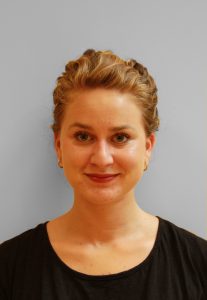 Daphné Minecci (class 2016) Major EPA, project engineer at SAFÈGE.
Daphné Minecci (class 2016) Major EPA, project engineer at SAFÈGE.
«I joined ENSCR after a physics-chemistry prep because I have an interest in environmental professions. I specialized in Environment, Processes and Analysis in the 2nd year, and in Processes at the end of the 3rd year. The training at the school allowed me to learn about the various water, air and waste treatment processes. I did my R&D internships in different areas (materials, renewable energy and drinking water treatment) because I have an appeal for diversity. I really enjoyed my 2nd year internship (in Vancouver): an internship abroad allows to be autonomous in English and to adapt to other working conditions. After my final internship at CIRSEE (International Center for Research on Water and the Environment) in Pecq (78), I chose to change my field to master’s degree. I joined the Special Works Unit of SAFEGE (Nanterre), as a project engineer. I appreciate this job because it combines terrain, relationships and teamwork. I work on various projects in collaboration with other engineers, related to water treatment (redesign of the biogas production portion of a wastewater treatment plant, introduction of a deodorization process on a wastewater collector, response to a call for tenders for the creation of a stormwater retention basin… ). This job is very varied and allows to have an overview of a project (by integrating the Civil Engineering and Electricity constraints, and no more than those related to water treatment as seen in school.”
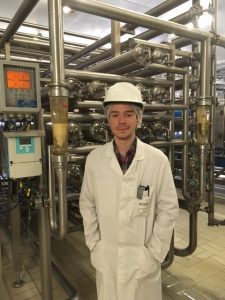 Léo Guinard (class 2016) EPA, process and environment engineer at Armor Protéines
Léo Guinard (class 2016) EPA, process and environment engineer at Armor Protéines
«After two years in Strasbourg in the Chem.I.St preparatory cycle of the ECPM (European School of Chemistry, Polymers and Materials), I joined the ENSCR in September 2014 with the idea of specializing in process engineering. After a year of common core, I joined the major EPA (Environment, Processes and Analysis) which allowed me to further refine my professional project. After a four-month internship in an innovative start-up in the Netherlands, I came out convinced that the future stakes will lie in the treatment of industrial effluents! In the last year, I chose to take a master’s degree in project management at the IGR in order to obtain a double competence allowing me to acquire the necessary tools to manage projects in business. Today a process and environment engineer at Armor Protéines (a subsidiary of the SAVENCIA group), a company specialized in the extraction of milk components, my daily routine is punctuated by the daily monitoring of the site’s energies (steam, treatment plant, electricity, cold) and the management of longer-term projects (setting up of ozonation process, monitoring of future treatment plant project, optimization of production processes, etc.). I also bring my knowledge of chemistry on a daily basis, as a consultant on the company’s chemical issues. There is no shortage of missions and my dual competence allows me to have a transversal position between management and chemistry and that is exactly what I am passionate about!”
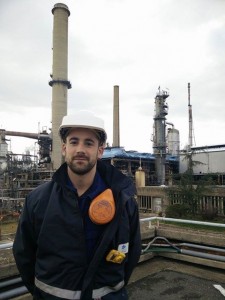 Adrien Chaton completed his training by following a master’s degree at IFP School.
Adrien Chaton completed his training by following a master’s degree at IFP School.
« I came back to the engineering cycle with the chance to have a fairly precise idea of my professional project, which is not always obvious in the face of the infinite possibilities that Chemistry opens to us! Personally, I was very attracted to the energy sector. In the 2nd year, I chose the Environment, Processes and Analysis (EPA) sector and then I went to Australia to carry out a research internship on a water treatment process for gas production. As soon as I got home, as soon as I left, I had the opportunity to work for TOTAL Exploration & Production in Congo, as part of a year of blindness, where I was responsible for operating a pilot production water treatment unit at an oil site.
These two experiments gave credibility to my project, which allowed me to integrate the IFP School and the Master Energy and Processes. Other masters can also be integrated with a chemical engineer profile. The teaching units use many notions of chemistry studied at school or in preparatory class, which facilitates the apprehension and the follow-up of the courses. This type of double degree has the particularity of making the students operational as soon as they leave school, which is highly appreciated by major energy groups. I sincerely encourage ENSCR students motivated by this choice of orientation to try their luck!»


